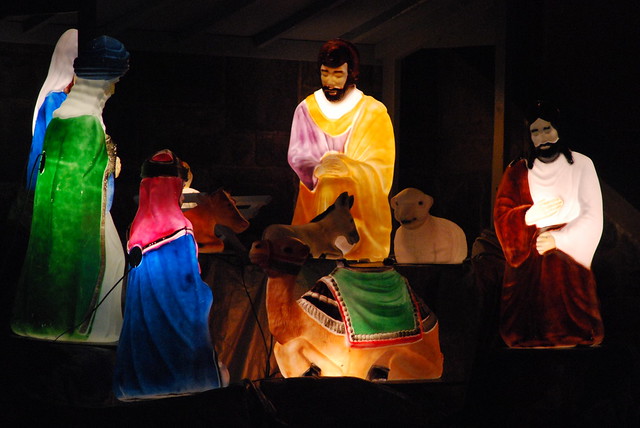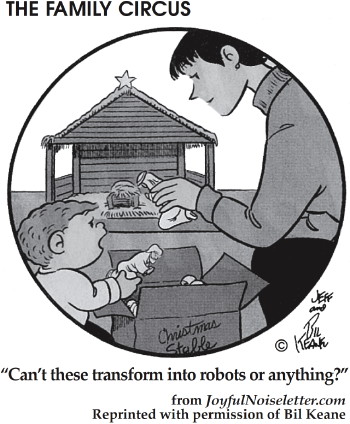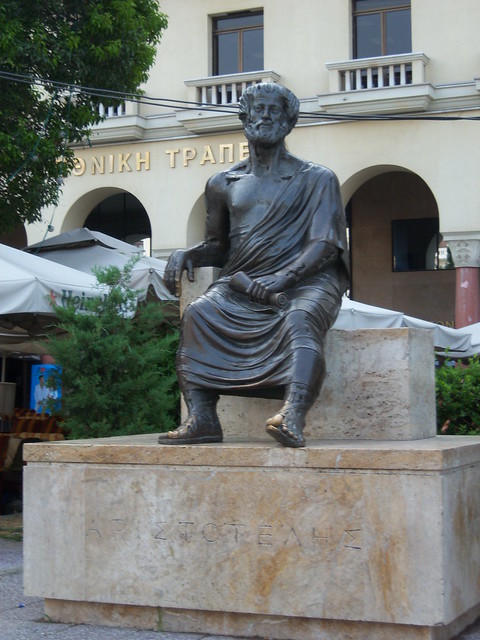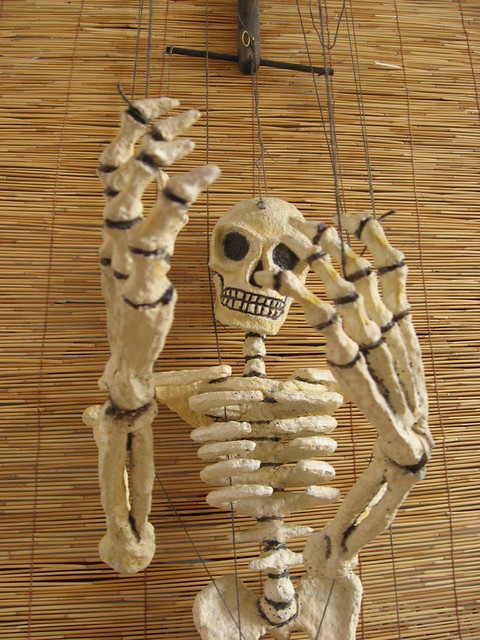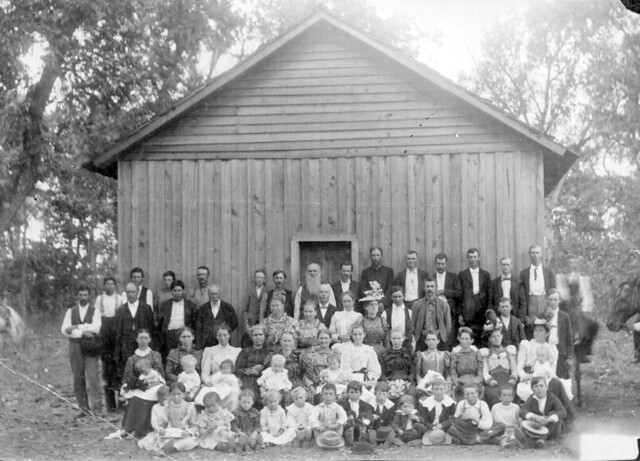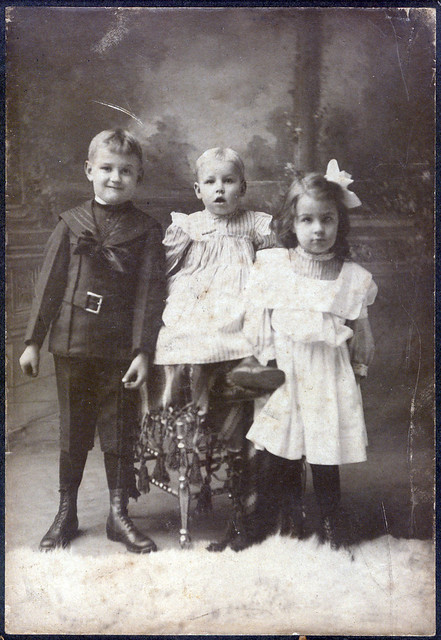In preparation for our VBS, I did a bible study on Joshua with several groups. It's too long for a single session, so pick and choose!
Joshua
Equipping
Exodus 17: 8 The Amalekites fought Israel at Rephidim. 9Moses said to Joshua, “Choose some of our men. Then fight the Amalekites. Tomorrow I will stand on top of the hill. I will hold in my hand the staff God told me to take along.” 10Joshua did as Moses told him and fought the Amalekites, while Moses, Aaron, and Hur went to the top of the hill. 11As long as Moses held up his hands, Israel would win, but as soon as he put his hands down, the Amalekites would start to win. 12Eventually, Moses’ hands felt heavy. So Aaron and Hur took a rock, put it under him, and he sat on it. Aaron held up one hand, and Hur held up the other. His hands remained steady until sunset. 13So Joshua defeated the Amalekite army in battle. 14The Lord said to Moses, “Write this reminder on a scroll, and make sure that Joshua hears it, too: I will completely erase any memory of the Amalekites from the earth.”
1) What do we learn about Joshua from this? Why make sure that Joshua hears it, too?
Exodus 24: 12 The Lord said to Moses, “Come up to me on the mountain. Stay there, and I will give you the stone tablets with the teachings and the commandments I have written for the people’s instruction.” 13Moses set out with his assistant Joshua, and Moses went up on the mountain of God. 14He said to the leaders, “Wait here for us until we come back to you. Aaron and Hur are here with you. … 18Moses entered the cloud as he went up the mountain. He stayed on the mountain 40 days and 40 nights.
Exodus 33:7 Now, Moses used to take a tent and set it up far outside the camp. He called it the tent of meeting. Anyone who was seeking the Lord’s will used to go outside the camp to the tent of meeting. 8Whenever Moses went out to the tent, all the people would rise and stand at the entrances to their tents and watch Moses until he went in. 9As soon as Moses went into the tent, the column of smoke would come down and stay at the entrance to the tent while the Lord spoke with Moses. 10When all the people saw the column of smoke standing at the entrance to the tent, they would all bow with their faces touching the ground at the entrance to their own tents. 11The Lord would speak to Moses personally, as a man speaks to his friend. Then Moses would come back to the camp, but his assistant, Joshua, son of Nun, stayed inside the tent.
2) What do we learn about Joshua here? Do you think he was up with Moses the whole 40 days? Why would he stay inside the tent?
Numbers 13: 1 The Lord said to Moses, 2“Send men to explore Canaan, which I’m giving to the Israelites. Send one leader from each of their ancestors’ tribes.” 3So at the Lord’s command, Moses sent these men from the Desert of Paran. All of them were leaders of the Israelites. … 4These are their names: … 6Caleb, son of Jephunneh, from the tribe of Judah; … 8Hoshea, son of Nun, from the tribe of Ephraim; …But Moses gave Hoshea, son of Nun, the name Joshua. … [Moses gave many things to look for]… 25Forty days later, they came back from exploring the land. 26They came back to Moses, Aaron, and the whole community of Israel at Kadesh in the Desert of Paran. They gave their report and showed them the fruit from the land.
27This is what they reported to Moses: “We went to the land where you sent us. It really is a land flowing with milk and honey. Here’s some of its fruit. 28But the people who live there are strong, and the cities have walls and are very large. …[They described the many peoples living there.] 30Caleb told the people to be quiet and listen to Moses. Caleb said, “Let’s go now and take possession of the land. We should be more than able to conquer it.” 31But the men who had gone with him said, “We can’t attack those people! They’re too strong for us!” 32So they began to spread lies among the Israelites about the land they had explored. They said, “The land we explored is one that devours those who live there. All the people we saw there are very tall. 33We saw Nephilim there. (The descendants of Anak are Nephilim.) We felt as small as grasshoppers, and that’s how we must have looked to them.”
[This betrayal and lack of faith angers God. He strikes the lying scouts dead of a plague, and curses the Israelites to wander in the desert 1 year for each day the scouts were gone, and guarantees that none of them will enter the land.] 14:38 Of all the men who went to explore the land, only Joshua (son of Nun) and Caleb (son of Jephunneh) survived.
3) What would that have been like for Joshua and Caleb? What do you think Joshua learned from this? What enabled him to be faithful in this?
Numbers 27: 12 The Lord said to Moses, “Go up into the Abarim Mountains, and take a look at the land I will give the Israelites. 13After you see it, you, too, will join your ancestors in death, as your brother Aaron did. …18So the Lord said to Moses, “Take Joshua, son of Nun, a man who has the Spirit, and place your hand on him. 19Make him stand in front of the priest Eleazar and the whole community, and give him his instructions in their presence. 20Give him some of your authority so that the whole community of Israel will obey him. 21He will stand in front of the priest Eleazar, who will use the Urim to make decisions in the Lord’s presence. At his command Joshua and the whole community of Israel will go into battle. And at his command they will return.” … 23Moses placed his hands on Joshua and gave him his instructions as the Lord had told him.
Deuteronomy 31:14 The Lord said to Moses, “The time of your death is coming soon. Call for Joshua. Both of you come to the tent of meeting, and I will give him his instructions.” Moses and Joshua came to the tent of meeting. 15Then the Lord appeared in a column of smoke at the entrance to the tent. [God foretells the Israelites future betrayals, and gives the amazing Song of Moses]… 23The Lord gave this command to Joshua, son of Nun: “Be strong and courageous, because you will bring the Israelites into the land that I swore to give them, and I will be with you.”
Deuteronomy 34: 9 Joshua, son of Nun, was filled with the Spirit of wisdom, because Moses had laid his hands on him. The Israelites obeyed him and did what the Lord had commanded through Moses.
Joshua 1: 1 After the death of the Lord’s servant Moses, the Lord said to Moses’ assistant Joshua, son of Nun, 2“My servant Moses is dead. Now you and all these people must cross the Jordan River into the land that I am going to give the people of Israel. … 7Only be strong and very courageous, faithfully doing everything in the teachings that my servant Moses commanded you. Don’t turn away from them. Then you will succeed wherever you go. 8Never stop reciting these teachings. You must think about them night and day so that you will faithfully do everything written in them. Only then will you prosper and succeed. 9I have commanded you, ‘Be strong and courageous! Don’t tremble or be terrified, because the Lord your God is with you wherever you go.’ ”
4) What would it be like to receive this blessing from God via Moses? What has Joshua learned that will make it possible? Have you ever followed someone who was hard to live up to?
Finally Entering the Promised Land
Joshua gave the people 3 days to pack. He sent spies into Jericho, the strong city that bordered the Jordan and barred their way into Canaan. But they were almost caught by the king’s men. A woman named Rahab saved them. And then had this exchange:
Joshua 2: 9 “I know the Lord will give you this land. Your presence terrifies us. All the people in this country are deathly afraid of you. 10We’ve heard how the Lord dried up the water of the Red Sea in front of you when you left Egypt. We’ve also heard what you did to Sihon and Og, the two kings of the Amorites, who ruled east of the Jordan River. We’ve heard how you destroyed them for the Lord. 11When we heard about it, we lost heart. There was no courage left in any of us because of you. The Lord your God is the God of heaven and earth. 12Please swear by the Lord that you’ll be as kind to my father’s family as I’ve been to you. Also give me some proof 13that you’ll protect my father, mother, brothers, sisters, and their households, and that you’ll save us from death.” 14The men promised her, “We pledge our lives for your lives. If you don’t tell anyone what we’re doing here, we’ll treat you kindly and honestly when the Lord gives us this land.”
5) What do you think about what Rahab did? Betraying her people, protecting her family, finding God…? Rahab is the mother of Boaz and the great-great-grandmother of King David.
Joshua 3: 9 So Joshua said to the people of Israel, “Come here, and listen to the words of the Lord your God.” 10Joshua continued, “This is how you will know that the living God is among you… 11Watch the ark of the promise of the Lord of the whole earth as it goes ahead of you into the Jordan River. … 13The priests who carry the ark of the Lord, the Lord of the whole earth, will stand in the water of the Jordan. Then the water flowing from upstream will stop and stand up like a dam.” 14So they broke camp to cross the Jordan River. The priests who carried the ark of the promise went ahead of the people. 15(The Jordan overflows all its banks during the harvest season.) When the priests who were carrying the ark came to the edge of the Jordan River and set foot in 16the water, the water stopped flowing from upstream. The water rose up like a dam … 17The priests who carried the ark of the Lord’s promise stood firmly on dry ground in the middle of the Jordan until the whole nation of Israel had crossed the Jordan River on dry ground.
Joshua 4: 1 The whole nation finished crossing the Jordan River. The Lord had told Joshua, 2“Choose one man from each of the 12 tribes. 3Order them to pick up 12 stones from the middle of the Jordan, where the priests’ feet stood firmly. Take the stones along with you, and set them down where you will camp tonight.”
Joshua 5: 9 The Lord said to Joshua, “Today I have removed the disgrace of Egypt from you.” So Joshua named the place Gilgal, the name it still has today. 10The people of Israel camped at Gilgal in the Jericho plain. There they celebrated the Passover on the evening of the fourteenth day of the month. 11On the day after the Passover, they ate some of the produce of the land, unleavened bread and roasted grain. 12The day after that, the manna stopped. The people of Israel never had manna again. That year they began to eat the crops that grew in Canaan.
6) After 40 years! What could this have been like? Would you have been happy or sad to see the end of the manna?
Joshua 5: 13 When Joshua was near Jericho, he looked up and saw a man standing in front of him with a sword in his hand. Joshua went up to him and asked, “Are you one of us or one of our enemies?” 14He answered, “Neither one! I am here as the commander of the Lord’s army.” Immediately, Joshua bowed with his face touching the ground and worshiped. He asked, “Sir, what do you want to tell me?” 15The commander of the Lord’s army said to Joshua, “Take off your sandals because this place where you are standing is holy.” So Joshua did as he was told.
Joshua 6: 2 The Lord said to Joshua, “I am about to hand Jericho, its king, and its warriors over to you. 3All the soldiers will march around the city once a day for six days. 4Seven priests will carry rams’ horns ahead of the ark. But on the seventh day you must march around the city seven times while the priests blow their horns. 5When you hear a long blast on the horn, all the troops must shout very loudly. The wall around the city will collapse. Then the troops must charge straight ahead into the city.”
6Joshua, son of Nun, summoned the priests. He said to them, “Pick up the ark of the promise, and have seven priests carry seven rams’ horns ahead of the Lord’s ark.” 7He told the troops, “March around the city. Let the armed men march ahead of the Lord’s ark.” … They did this for six days.
15On the seventh day they got up at dawn. They marched around the city seven times the same way they had done it before. That was the only day they marched around it seven times. 16When they went around the seventh time, the priests blew their rams’ horns. Joshua said to the troops, “Shout, because the Lord has given you the city! 17The city has been claimed by the Lord. Everything in it belongs to the Lord. Only the prostitute Rahab and all who are in the house with her will live because she hid the messengers we sent. 18But stay away from what has been claimed by the Lord for destruction, or you, too, will be destroyed by the Lord. If you take anything that is claimed by the Lord, you will bring destruction and disaster on the camp of Israel. 19All the silver and gold and everything made of bronze and iron are holy and belong to the Lord. They must go into the Lord’s treasury.” 20So the troops shouted very loudly when they heard the blast of the rams’ horns, and the wall collapsed. The troops charged straight ahead and captured the city. 21They claimed everything in it for the Lord. With their swords they killed men and women, young and old, as well as cattle, sheep, and donkeys. 22But Joshua said to the two spies, “Go to the prostitute’s house. Bring the woman out, along with everything she has, as you swore you would do for her.” … 24Then Israel burned the city and everything in it. But they put the silver and gold and everything made of bronze and iron into the Lord’s treasury. 25Joshua spared the prostitute Rahab, her father’s family, and everything she had.
(Joshua 7) Despite Joshua’s serious warnings, Achan takes some treasure from Jericho. The Lord is angered, and the people kill him and his family when they find out.
7) Out of the many amazing stories in the Old Testament, this is one of the most famous. Why do you think? What can it teach us today?
Taking the Land that was Given
(Joshua 8) The Israelites defeat Ai by tricking them out of their city. Again the city is left without a soul.
Joshua 8: 30 At that time Joshua built an altar on Mount Ebal to the Lord God of Israel . 31He built an altar with uncut stones on which no iron chisels had been used. This was as the Lord’s servant Moses had commanded the people of Israel in the book of Moses’ Teachings. … 35Joshua read Moses’ Teachings in front of the whole assembly of Israel, including women, children, and foreigners living among them. He did not leave out one word from everything Moses had commanded.
8) How do you reconcile God’s command to the Israelites to wipe out certain peoples with the God who in Jesus’ person says “love your enemies”?
The Gibeonites who live near Ai are scared at this point. They come to meet the Israelites disguised as foreigners who have traveled far and beg for a treaty with the Israelites because of their mighty God.
Joshua 9:14 The men believed the evidence they were shown, but they did not ask the Lord about it. 15So Joshua made peace with them by making a treaty which allowed them to live. … [Within 2 days of travel, however, they found that the people of Gibeon were among their new neighbors!]… 22Joshua sent for the people of Gibeon and asked, “Why did you deceive us by saying, ‘We live very far away from you,’ when you live here with us? 23You are under a curse now. You will always be servants. You will be woodcutters and water carriers for the house of my God.” 24They answered Joshua, “We were told that the Lord your God commanded his servant Moses to give you the whole land and destroy all who live there. We deceived you because we feared for our lives. 25Now we’re at your mercy. Do to us what you think is good and right.” 26So Joshua rescued them and did not let the people of Israel kill them.
9) Why not destroy the Gibeonites? Were the Gibeonites right to deceive the Israelites? What might Joshua have learned from this?
Joshua 10: 12 The day the Lord handed the Amorites over to the people of Israel, Joshua spoke to the Lord while Israel was watching, “Sun, stand still over Gibeon, and moon, stand still over the valley of Aijalon!” 13The sun stood still, and the moon stopped until a nation got revenge on its enemies. Isn’t this recorded in the Book of Jashar? The sun stopped in the middle of the sky, and for nearly a day the sun was in no hurry to set. 14Never before or after this day was there anything like it. The Lord did what a man told him to do, because the Lord fought for Israel.
10) How do you reconcile incredible accounts like this with what we know in our modern age?
(Joshua 12) All together they conquered 31 kings. This was not all, but left some peoples for the tribes to take care of in their own territories.
Joshua began dividing up land, but what about the other survivor of the exodus?
Joshua 14: 6 Then the people of Judah came to Joshua at Gilgal. Caleb, son of Jephunneh and grandson of Kenaz, said to him, “You know what the Lord said to Moses, the man of God, at Kadesh Barnea about you and me. 7I was 40 years old when the Lord’s servant Moses sent me from Kadesh Barnea to explore the land. I reported to him exactly what I thought. 8But my companions discouraged the people. However, I was completely loyal to the Lord my God. 9On that day Moses swore this oath: ‘The land your feet walked on will be a permanent inheritance for you and your descendants because you were completely loyal to the Lord my God.’ 10So look at me. The Lord has kept me alive as he promised. It’s been 45 years since Israel wandered in the desert when the Lord made this promise to Moses. So now look at me today. I’m 85 years old. 11I’m still as fit to go to war now as I was when Moses sent me out. 12Now give me this mountain region which the Lord spoke of that day. You heard that the people of Anak are still there and that they have large, fortified cities. If the Lord is with me, I can force them out, as he promised.” 13So Joshua blessed Caleb, son of Jephunneh, and gave him Hebron as his inheritance.
11) Caleb’s faith is awesome. Do you know someone like that? What effect does it have on their life?
(Joshua 17) Zelophehad’s daughters receive inheritance. (Joshua 20) Six cities of refuge.
Joshua 24: 1Joshua gathered all the tribes of Israel together at Shechem. …[The Lord describes all he did for them from Abraham, Isaac, Jacob and Joseph, with Moses in Egypt, the desert, and with Joshua in taking Canaan.] …13So I gave you a land that you hadn’t farmed, cities to live in that you hadn’t built, vineyards and olive groves that you hadn’t planted. So you ate all you wanted!”
[Joshua says] 14“Fear the Lord, and serve him with integrity and faithfulness. Get rid of the gods your ancestors served on the other side of the Euphrates River and in Egypt, and serve only the Lord. 15But if you don’t want to serve the Lord, then choose today whom you will serve. Even if you choose the gods your ancestors served on the other side of the Euphrates or the gods of the Amorites in whose land you live, as for me and my house, we will serve the Lord.”
16The people responded, “It would be unthinkable for us to abandon the Lord to serve other gods. 17The Lord our God brought us and our ancestors out of slavery in Egypt. He did these spectacular signs right before our eyes. He guarded us wherever we went, especially as we passed through other nations. 18The Lord forced out all the people ahead of us, including the Amorites who lived in this land. We, too, will serve the Lord, because he is our God.”
19But Joshua answered the people, “Since the Lord is a holy God, you can’t possibly serve him. He is a God who does not tolerate rivals. He will not forgive your rebellious acts and sins. 20If you abandon the Lord and serve foreign gods, he will turn and bring disaster on you. He will destroy you, although he has been so good to you.”
21The people answered Joshua, “No! We will only serve the Lord!” 22Joshua said to the people, “You have testified that you have chosen to serve the Lord.” They answered, “Yes, we have!” 23“Get rid of the foreign gods that are among you. Turn yourselves entirely over to the Lord God of Israel.” 24The people replied to Joshua, “We will serve the Lord our God and obey him.”
25That day Joshua made an agreement for the people and set up laws and rules for them at Shechem. 26Joshua wrote these things in the Book of God’s Teachings. Then he took a large stone and set it up under the oak tree at the Lord’s holy place. 27Joshua told all the people, “This stone will stand as a witness for us. It has heard all the words which the Lord spoke to us. It will stand as a witness for you. You cannot deceive your God.” 28Then Joshua sent the people away, each to his own property. 29After these events, the Lord’s servant Joshua, son of Nun, died. He was 110 years old. 30He was buried on his own land at Timnath Serah in the mountains of Ephraim north of Mount Gaash.
12) We know that they went from this decision to falling away. What do you think happened? Why did God stay faithful to him?
13) Looking back over Joshua’s life, how would you describe him? What can we learn from him?




